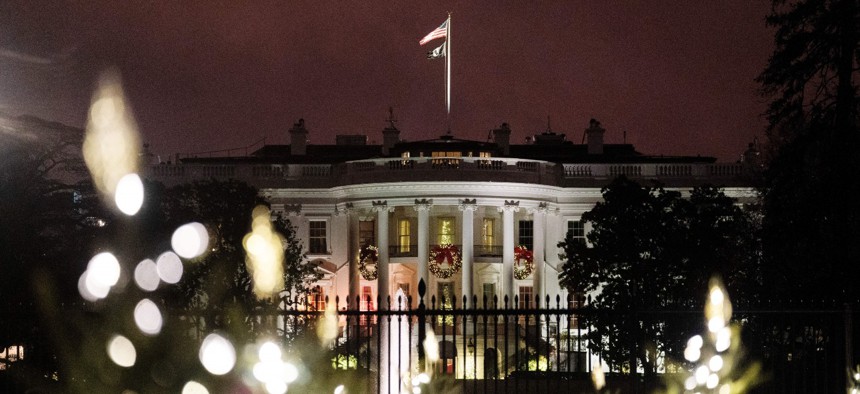
Many presidential administrations have tried to improve transparency, but it is often a struggle. Liu Jie/Xinhua via Getty Images
The White House Charts a Course for Open Government
The fifth U.S. Open Government National Action Plan, shared exclusively with Government Executive before release, builds on many of the Biden administration's previous efforts.
The White House released a plan on Wednesday for how the Biden administration seeks to foster a more open and accountable government.
Transparency is something for which many presidential administrations strive, but success can be elusive, as shown during the Obama and Trump presidencies. Nevertheless, the almost-two year old Biden administration unveiled its first and the fifth overall U.S. Open Government National Action Plan, shared exclusively with Government Executive. This builds on many of the Biden administration's efforts, including the president’s management agenda.
“Government works best when we create channels for members of the public to regularly engage with us—and hold us accountable for improving the lives of all people, including those communities that have been excluded from social, economic and civic life,” said Alexander Macgillivray, deputy assistant to the president and principal deputy U.S. chief technology officer. “This action plan creates and deepens these channels across the federal government.”
The themes for the plan are: improving access to government data, research and information; increasing civic space to engage with the public; transforming the delivery of government services (the subject of an executive order President Biden issued last year); countering corruption and ensuring government accountability and integrity; and ensuring equal justice under the law. For each, the plan lists actions the administration has taken or will be taking.
For example, in the next few years the National Archives and Records Administration plans to improve its catalog (which helps members of the public find records produced and maintained by the federal government) and update its main website—archives.gov—for a better user experience.
NARA also “commits to engaging with underserved communities and working with community points of contact to identify and prioritize records in NARA’s holdings that are important and impactful to those communities,” the report said. “This effort, organized over the next two to four years, will result in meeting with community points of contact, identifying pertinent records, and prioritizing records for processing, description, digitization, bulk download, transcription, or potentially other collaborative projects.”
Other forthcoming actions include plans over the next year to expand coverage of waivers for domestic procurement laws posted on the “Made in America” website, which was launched under Biden, and to bolster community engagement in the rulemaking process. Richard Revesz, the newly confirmed administrator of the Office of Information and Regulatory Affairs, housed within the White House Office of Management and Budget, will likely be very involved in this.
Also, the Justice Department will take more actions to encourage openness through Freedom of Information Act requests, following actions Attorney General Merrick Garland announced in March.
As for accountability, the Biden administration will continue to implement guidance issued in December 2021 that encourages agencies to increase communication and collaboration with their inspectors general, among other things.
In the drafting of the plan, administration officials had months of engagement in various ways with the public and worked to hear from communities previously excluded. To do so, the administration aligned the creation of the plan with implementation of the executive order Biden signed on his first day in office on advancing equity and supporting underserved communities through the power of the federal government.
“Support for a more transparent, responsive, and inclusive federal government has always been important, but it is especially vital today,” Sabeel Rahman, OIRA associate administrator, said in a statement. “At a time when the principles of equality and democracy are threatened around the world, it is imperative that the U.S. lead by example and prove that democracies can deliver for their people.”
Correction: The first quote has been correctly attributed to Alexander Macgillivray, not Alondra Nelson.







